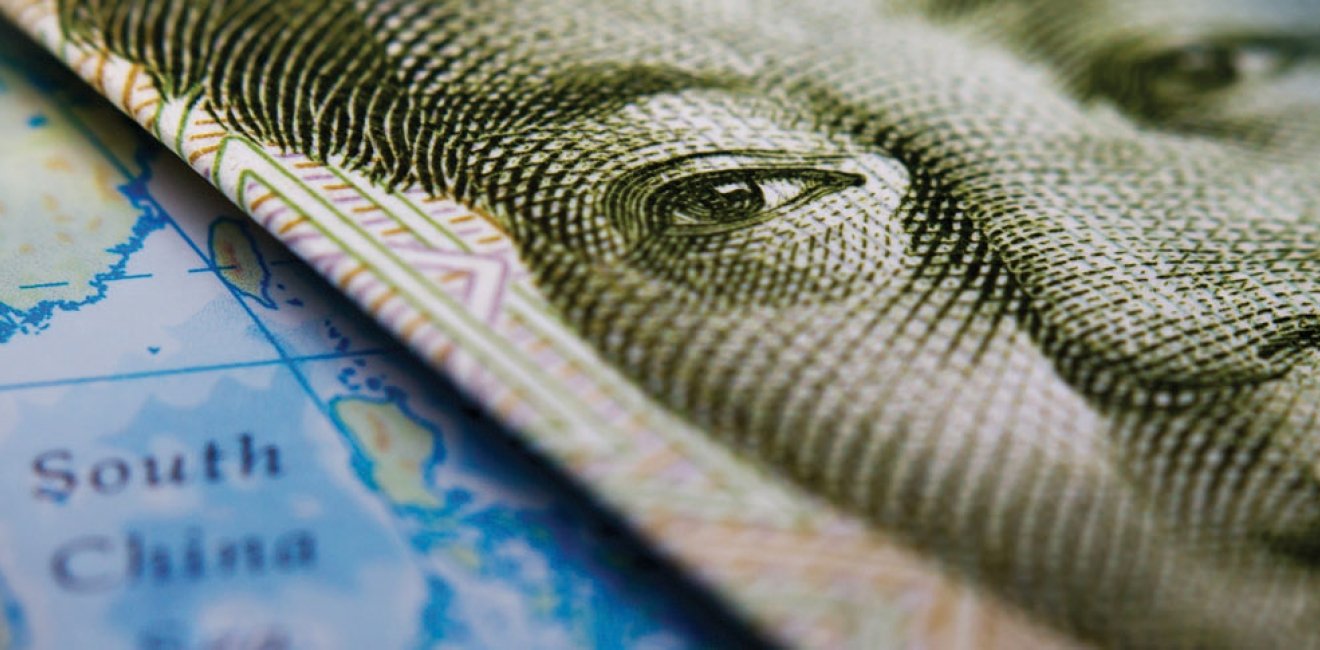Climate Superpowers
China’s unwillingness to become a ‘responsible stakeholder’ is the issue of contention in great power competition. The objective of U.S. policy continues to be to compel China to abide by rules. The urgency of climate in Western policy agendas gives China significant leverage to exact technology and financial aid, or asymmetric policy capitulations (for example, averting our eyes from Chinese aggression in the South China Sea in order to keep cooperation on climate). But if handled smartly in Western policies, climate also has the potential to defang great power competition by fostering change within China and better organizing the West with regard to channeling China into rule-abiding behavior.
China is not a superpower in any way except one. It does not have a military that could defeat the United States’ (despite the anguished concern of military planners). Its per capita gross domestic product of $16,842, even at purchasing power parity, ranks it 79th in the world, between Iraq and the Maldives. Its GDP growth rate has halved since 2008, its debt has quintupled, and its demographic dividend of working age population is about to reverse into an aged population with inadequate social safety net or working-age population to support it. It lacks self-sufficiency in food, water, and energy.[1] The one metric in which China is a superpower is pollution. China’s carbon emissions surpass those of the United States and European Union combined.
Surprising Progress
Strange as it may seem, despite withdrawing from the Paris Climate Accords, despite a regulatory rollback at both the federal and state levels and the overt hostility of the Trump Administration, the United States was in 2018, according to UN Secretary General António Guterres, on track to meet the climate goals in the Paris Accords. The U.S. is achieving its goals through a combination of states like California and cities like Chicago setting rigorous standards, incentives offered by philanthropists like Michael Bloomberg, corporations like Apple Computers seeking brand association with advancing pro-climate policies, the military’s aspiration to reduce reliance on vulnerable or expensive supplies, and growing public awareness driving consumer choices in climate-protecting directions.
This disparity would seem to further aggravate great power competition. China has a weapon—pollution—it can leverage to influence government policies in the West, where vibrant civil societies (absent in China itself) affect policy. China can piously claim to be a poor country in need of Western technology and financial assistance to reduce its carbon footprint, and then use those resources to its advantage in economic competition with Western companies and for military improvements that expand its potential to threaten Western allies and interests. It can confront Western policymakers with trade-offs between threats their public cares about (climate) and systemic corrosion of the rules-based international order (rejecting Tribunal findings) or direct threats that may not seem relevant to many in the West (Hong Kong, Taiwan).

But ruthless and repressive as the Chinese government is toward its own people, it is not wholly insensitive to public concern. The U.S. Embassy in Beijing proved that in 2008, by beginning to monitor and tweet out air quality data, first in the capital and eventually in 70 Chinese cities. That simple and inexpensive action by the United States forced the Chinese government to be more accountable to its own public, to dramatic policy consequence: the Chinese government could no longer successfully falsify data, and concern about public reaction pushed climate way up the government agenda.
We know what the Chinese government is afraid of: its own people. It fears they will demand outcomes the government can’t deliver, especially economically. Given Chinese public concern about pollution, the government may not carry the argument with its own public that rich countries’ historical responsibility for environmental damage precludes assigning any responsibility for current damage on poorer countries creating it. And that gives the West a second weapon: using economic policies that would penalize China for climate damage as a way to channel the Chinese economy into accepting the practices other countries abide by on climate, and might set an important precedent for wider rule abiding.
A Climate Club
As Jeff Colgan has argued, the urgent needs of addressing climate change offer the opportunity for the United States and its allies to draw China into more cooperative participation with the rules-based order. Colgan proposes the creation of a ‘climate club’ of countries that meet agreed minimum standards of climate preservation policies and apply trade tariffs to products and services of countries that do not.[2]
Creating a climate club like this would not address the security problems of Chinese state firms’ military links or espionage, but it could provide an important area of cooperation to stabilize great power competition and begin building trust that will be essential for progress in other more contentious areas, like arms control or resolving competing territorial claims. It would also give Western powers a positive and publicly popular agenda to organize around, something less fractious than 5G infrastructure decisions. In doing so, it would strengthen the major advantage the U.S. has in great power competition, which is the ability to play team sports.
From Competition to Climate Protection
Current trends both in China and the West risk militarizing the U.S.-China competition. China has accelerated its repression against Hong Kong political activism, Uighur culture, and disputed territorial boundaries in all azimuths from the Himalayas to the East China Sea. The U.S. is structurally biased toward military policy tools because of chronic under-investment in other government agencies, and the erratic belligerence of the Trump administration sends confusing signals that can exacerbate crises.
Developing a climate agenda that advances the U.S. objectives of pulling China into more rule-abiding international behavior would be a major victory in the emergent great power competition, organize Western countries into a sustainable common front pushing China on an issue of great concern to their own publics, prevent China from utilizing climate as a predatory economic policy, and create the basis for greater trust and cooperation on other issues. And, incidentally, provide a way to prevent terrible damage to our planet.
[1] Beckley, M. (2018). Unrivaled: Why America Will Remain the World’s Sole Superpower. Ithaca, N.Y.: Cornell University Press.
[2] Jeff Colgan, “Risks of U.S.-China Decoupling in a Warming World,” paper presented for America and the World Consortium conference, 22 June 2020.
Author


Environmental Change and Security Program
The Environmental Change and Security Program (ECSP) explores the connections between environmental change, health, and population dynamics and their links to conflict, human insecurity, and foreign policy. Read more

Explore More
Browse Insights & Analysis
Can Climate-Resilient Agriculture Become an Engine for Syria’s Post-Conflict Recovery?

ECSP Weekly Watch | March 10 – 14

ECSP Weekly Watch | February 17 – 21



